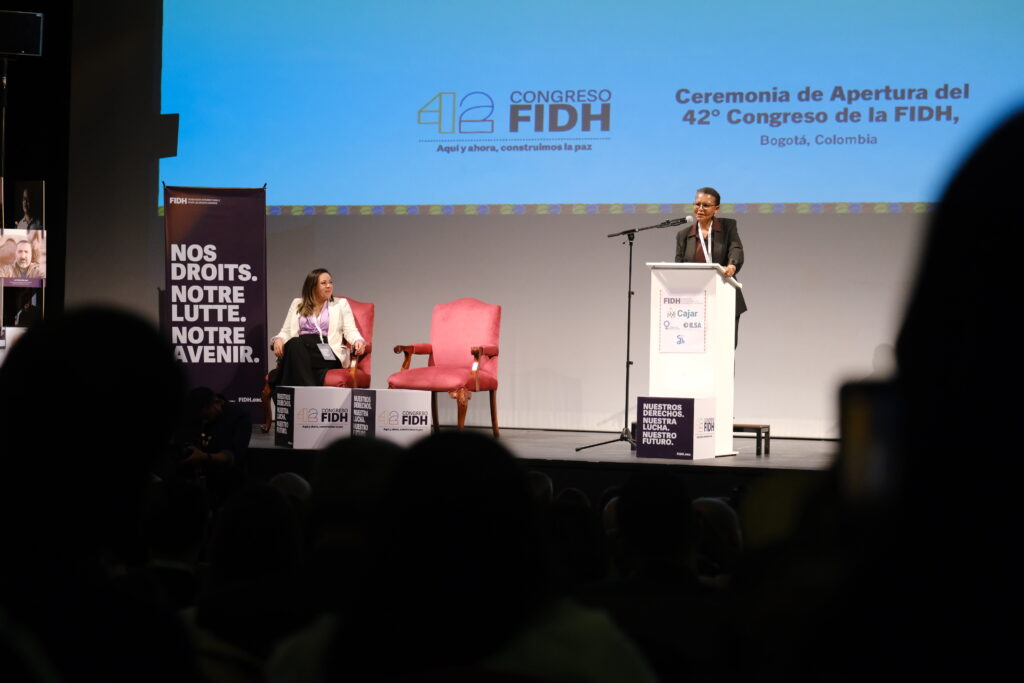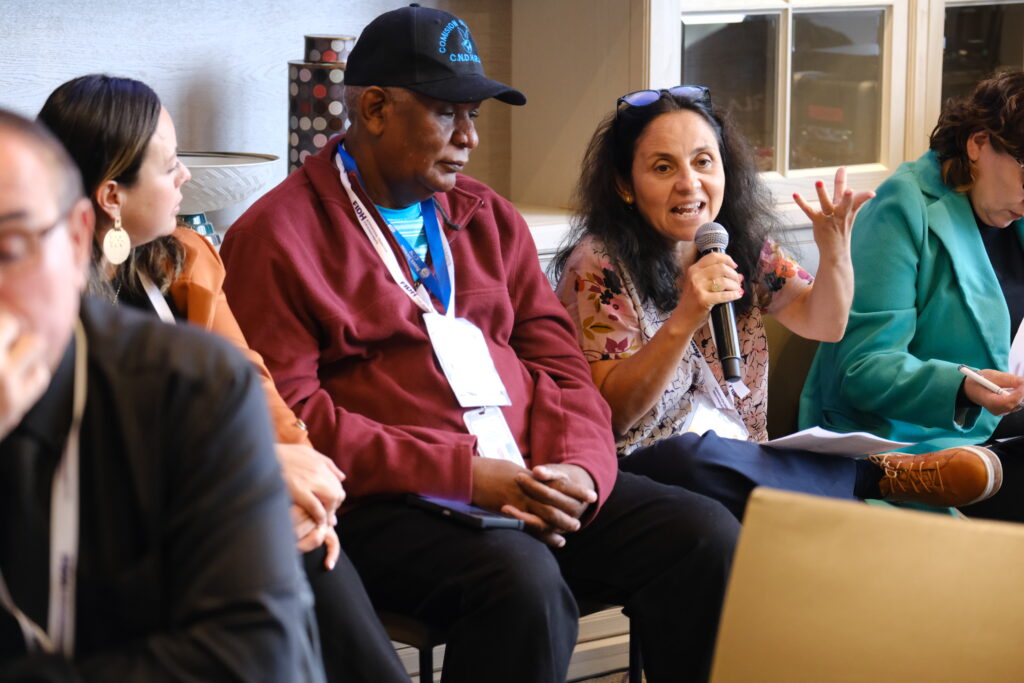
This week, more than 400 rights defenders from over 100 countries are meeting in Bogotá for the International Federation for Human Rights’ (FIDH) 42nd Congress.
The event, held every three years, convenes FIDH’s 188 member organizations who vote on strategies to redress rights abuses worldwide.
While the summit does not focus on a specific region, its location in Latin America has sparked a particular discussion on how to tackle what organizers say is the biggest threat to human rights in the region: organized crime.
“Since COVID, there has been an explosion of violence related to organized crime across the continent,” Jimena Reyes, Americas Desk coordinator at FIDH, told The Bogotá Post.

Soaring drug-related crime in Ecuador, state siege by cartels in Mexico, and the proliferation of illegal armed groups in Colombia are all examples of the growing strength of illicit organizations across the region.
In addition to their involvement in drug trafficking, groups also derive income from illicit gold and mineral mining, timber, cattle ranching and more. Many of these activities occur in remote areas with limited state presence, endangering local land defenders.
A recent report by Global Witness, a non-profit, found 82% of all documented cases of killed or disappeared environmental and land defenders in 2024 were in Latin America. The largest number of incidents happened in Colombia, the Congress’ host country.
“The host country was chosen for several reasons, one of which is to show solidarity with our colleagues [in Colombia],” said Reyes.
Beyond raising awareness, the FIDH has been exploring ways to reduce the stranglehold of organized crime on Latin American communities and institutions.
Reyes explained that one way she believes NGOs can effectively tackle criminal networks is through documenting the crimes they commit. She also noted the importance of exposing the links between illegal actors and state functionaries.
Reyes highlighted the organization’s work in Mexico, where it has exposed links between cartels and local government authorities in overseeing forced disappearances. By documenting and publicizing the systemic nature of the crimes, Reyes believes the organization is helping pave the way to justice.
“What we have shown is that these crimes are crimes against humanity. And that is one of the main lines of work: to show that non-state actors involved in organized crime can commit crimes against humanity and can be prosecuted before the International Criminal Court,” she explained.
While the FDIH was unable to persuade the ICC to open an investigation into these crimes, it has successfully lobbied the United Nations Committee on Enforced Disappearances to discuss the Mexican state’s role in forced disappearances.
“The Mexican government is not very happy about this,” said Reyes, “but people who accept money from organized crime must be prosecuted and brought to trial.”
As Latin America struggles to contain the growing power of illicit networks, the FIDH hopes actions like these can begin to dismantle them.
Reyes acknowledges the challenge of the battle, especially given the urgent need for attention on the human rights crises in areas like Gaza and Sudan.
But she is hopeful that this week’s summit will provide a chance for rights defenders across the region to devise novel solutions to the scourge of organized crime: “Yes, it is a complex issue, but it is also our role as human rights defenders to keep fighting.”





